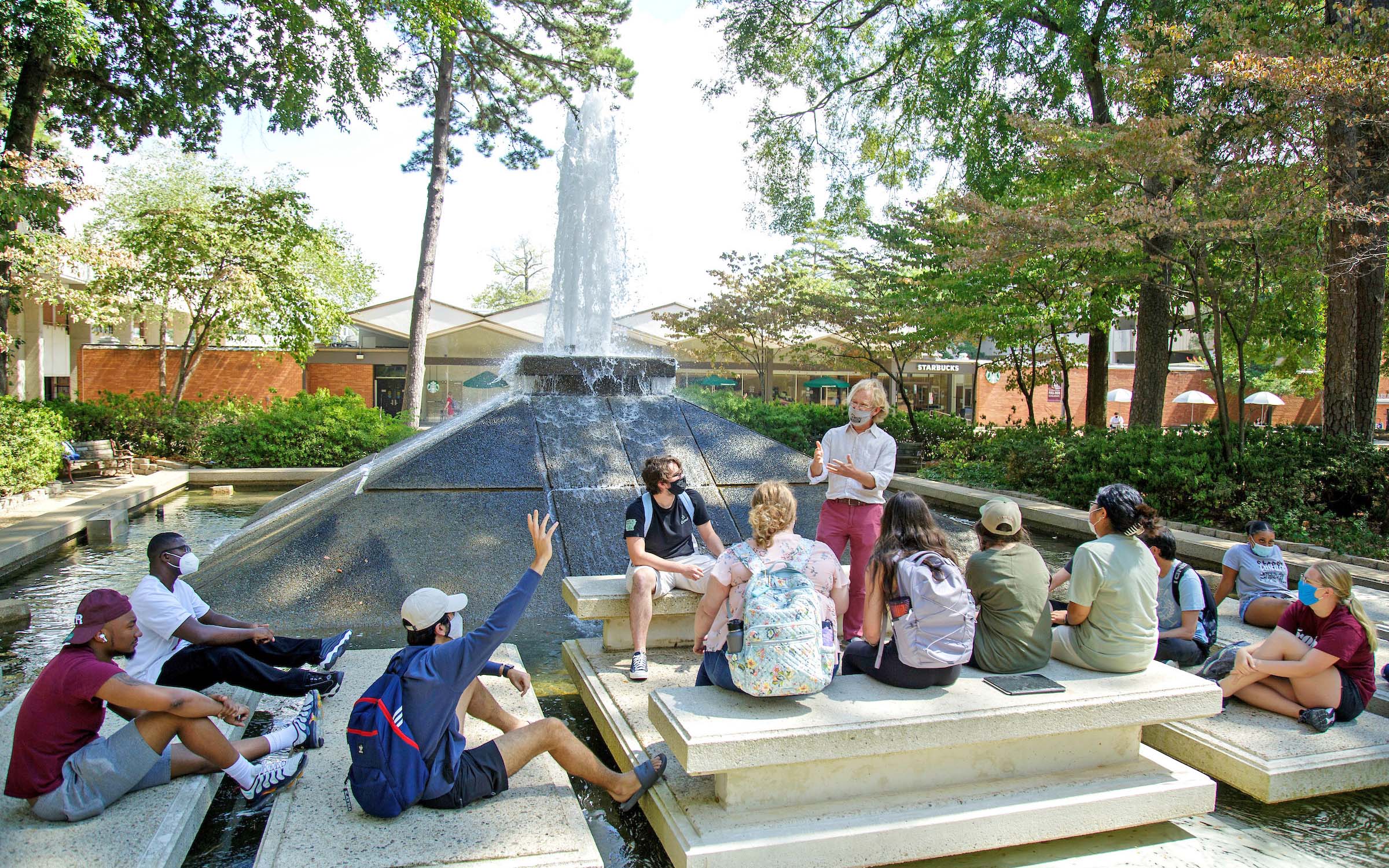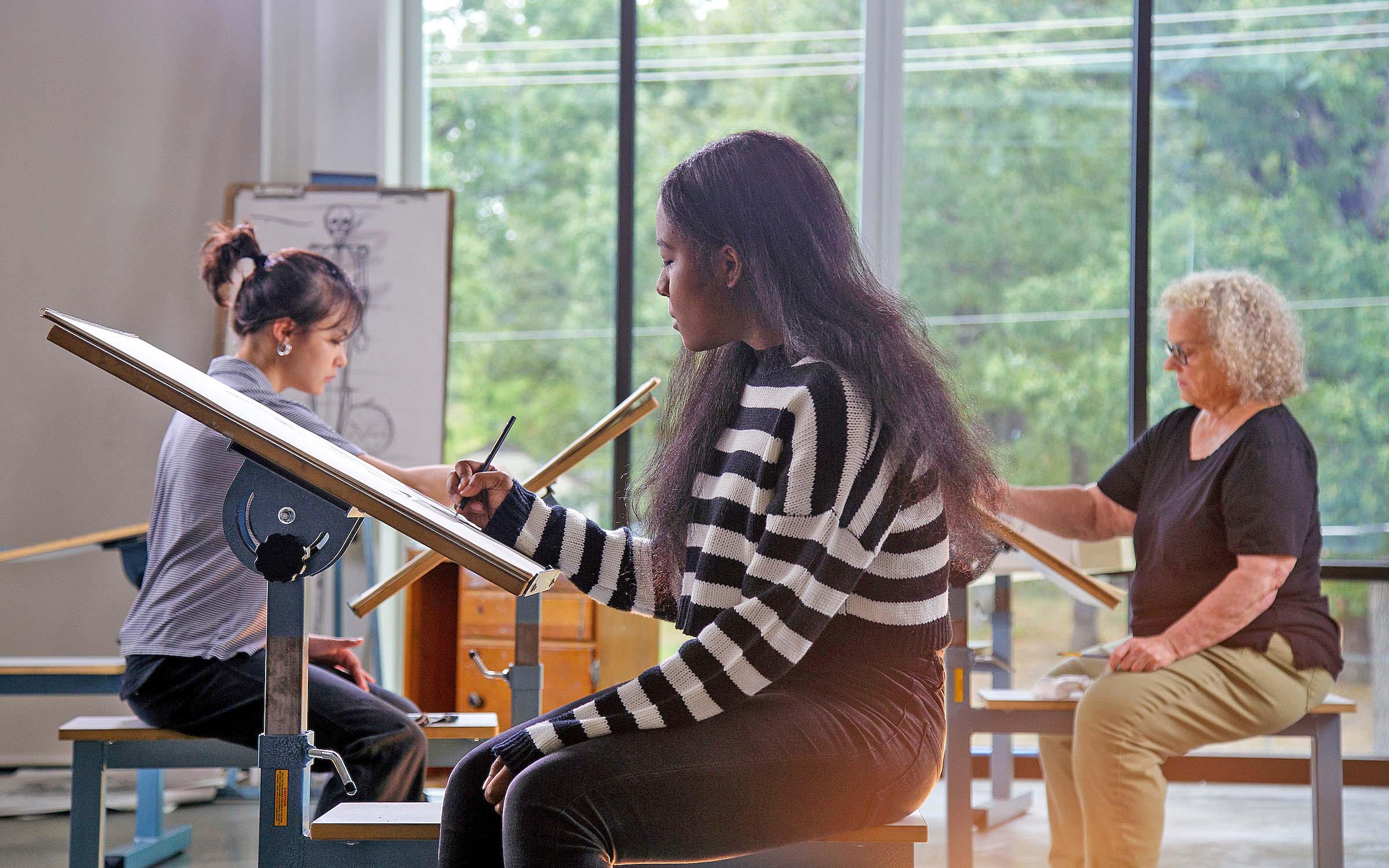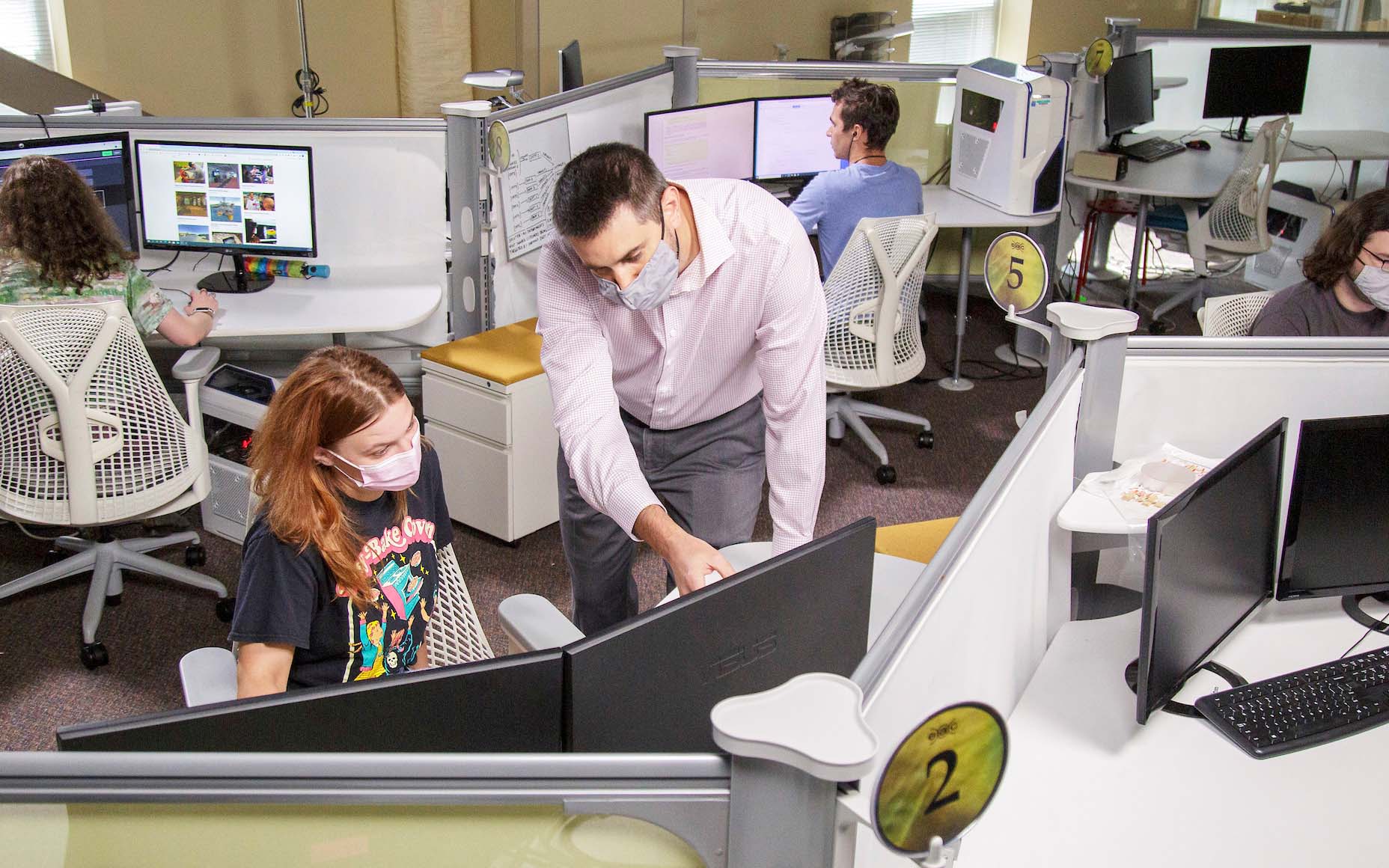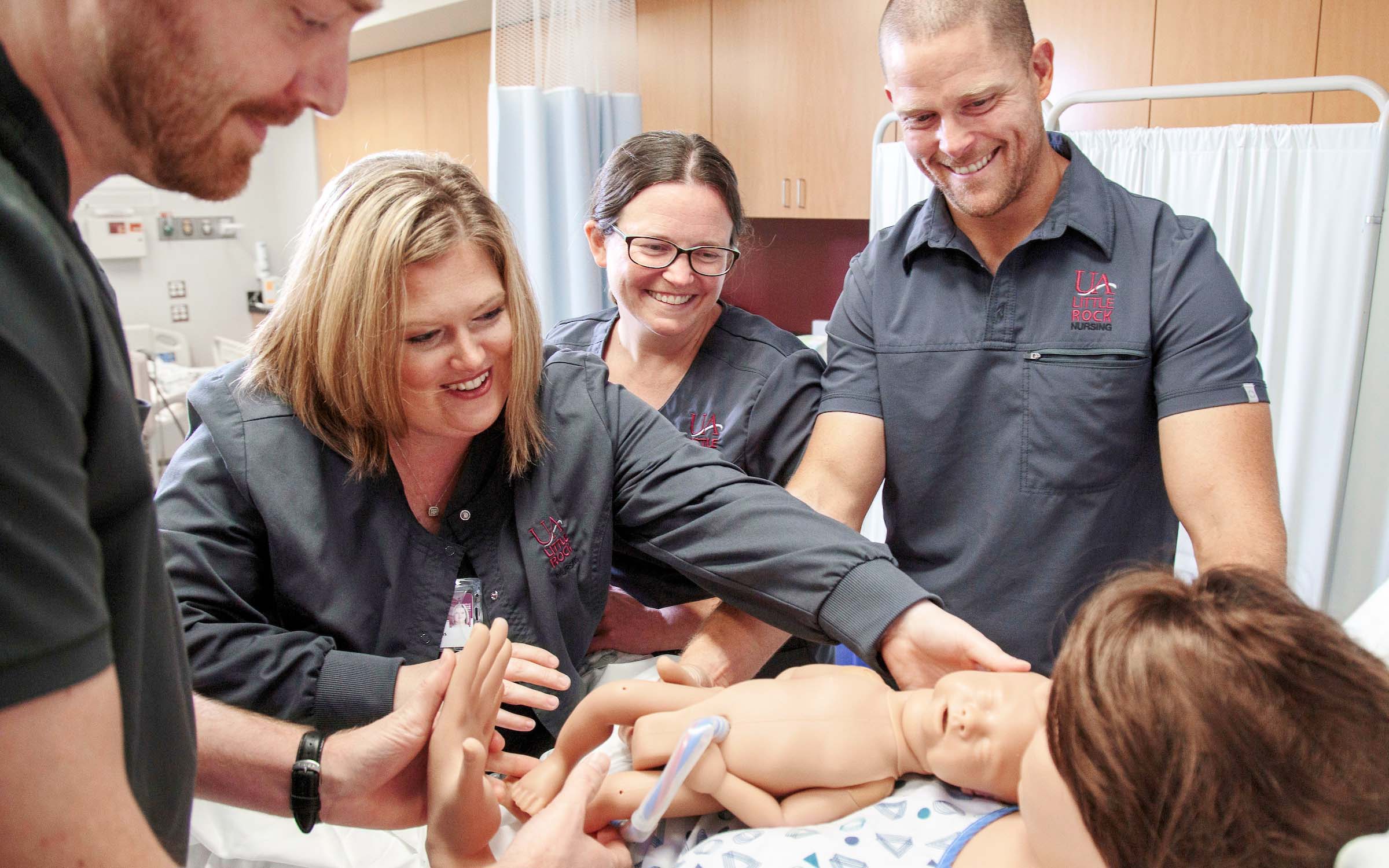Local faculty create holiday wish lists for college students in need
December 20-26, 2021
By Angelita Faller, UA Little Rock
The onset of the COVID-19 pandemic has signaled major shifts in higher education. As campuses closed down and higher education moved to virtual learning, new gaps in what students need to succeed became apparent.
In a post-pandemic world, colleges and universities are shifting gears to fundraisers focused on helping students succeed in college and move onto productive careers.
Jeffery McLain, senior director of gift planning at Texas A&M University-Kingsville and a member of the Council for Advancement and Support of Education, said that giving in higher education has changed rapidly in the past two years to respond to how the pandemic has changed higher education. His university responded with a focus on growing the student emergency fund to help students in need and by investing in technology to help students adapt to virtual learning.
“The pandemic made it apparent to us that there was a real gap between the haves and the have nots,” McLain said. “The coronavirus pointed out some vulnerabilities and weaknesses that many universities have.”
Now that most universities have reopened their campuses to students, higher education giving and fundraising has taken a shift to focus on student success, retention, and career readiness. Universities have seen the challenges their students are facing and are stepping up to give students the tools they need to graduate.
One of the ways UA Little Rock is putting a focus on this new trend in higher education giving is with the Holiday Wish List Campaign, a series of wish lists provided directly by faculty to help students.
“The Holiday Wish List is a unique opportunity for donors to see how their gift directly impacts a student’s life,” said Samantha Wiley, director of annual giving. “Often, donors give and never see their contribution at work or know precisely how the funds are used. With this giving campaign, donors know, for example, that their $100 to the School of Public Affairs will be used to purchase textbooks for students who otherwise wouldn’t be able to afford them.”
One of the wish list items is to send 25 students in UA Little Rock Choirs to perform at Carnegie Hall in June 2022. This professional trip will be the first time UA Little Rock students have performed at Carnegie Hall.
“To say that singing in New York has been a lifelong dream of mine is a complete understatement,” said Kaitlyn Kendrick, a music performance major. “Ever since I was a little girl, I imagined myself performing all over New York and to be able to experience such a high honor like singing in Carnegie Hall is more than I could have imagined I would be doing in my early career.”
Dr. Lorissa Mason, director of choral activities who will serve as the conductor for the Carnegie Hall performance, said that this performance will be a life-changing experience that will open doors of opportunity for the participating students.
“We have a number of students who have remained enrolled at the university and set goals for finishing a degree because this opportunity has meant enough to keep them inspired and motivated,” Mason said. “The futures of these singers include not only careers as professional performers and music educators, but a new generation of supporters for the arts overall. This kind of experience for these students will reap benefits far into the future that include travel experiences, cultural diversification, musical memories, and preparation for success in the professional world.”
Other campaigns are geared toward helping students get the essentials they need to go to college, including food, textbooks, and computers. Rebecca Nugent, student affairs program manager, said the food pantry at the William H. Bowen School of Law responds to around 35 requests for assistance every month. They are hoping to raise $5,000 to help students facing food insecurity.
“In order to provide this much-needed service to students and their families, the law school relies on the generosity of donors who help stock our pantry with shelf-stable food items,” Nugent said. “Contributions of $100 will provide 15 students with a meal.”
The Department of Computer Science is fundraising to purchase new desktop computers to replace outdated classroom computers.
“As a computer science student, having access to up-to-date technology is necessary to be able to complete my coursework,” said Julia Green, president of the UA Little Rock Student Chapter of the Association for Computing Machinery. “These computers will help not only me, but many other students have access to quality machines for course work.”
Additional campaigns are focused on giving students professional, research, and creative experiences by providing equipment to help with research and creative projects, internships, and memberships in professional organizations.
The UA Little Rock School of Criminal Justice and Criminology is raising funds to buy brain scanners that students will use to conduct biosocial research. The headbands enable students to measure brain activity and other stress-related biological measures in real time.
“It is important for students to understand how stress affects the body and mind given that there are several aspects of the field of criminal justice that are associated with stress,” said Dr. Richard Lewis, assistant professor of criminal justice. “Whether it is the chronic stress of police work, the stress felt by victims of crimes, or the stress experienced by social workers helping those who have experienced trauma, stress is an inherent part of the field of criminal justice, and an important factor to be studied and understood by individuals who want to go into this field.”
In his 39 years in higher education, McLain said that staying engaged with alumni and donors is a key trend for success in higher education giving that has become even more important in a post-pandemic world.
“In universities, a trend is to always engage your alumni and always take care of your donors because they continue to give,” McLain said. “You tell heartwarming stories that show how philanthropy has made a difference in students’ lives. We make a difference in students’ lives by helping them get a degree. That is a trend we should always encourage.”
As a first-generation college graduate, Bonnie Limbird, a retired social worker, alumnae, and member of the UA Little Rock School of Social Work Advisory Board, said that giving to a wish list is especially important for first-generation students. They face unique challenges to complete college, but don’t always have the same support and resources as traditional students.
“UA Little Rock understands the unique challenges posed for first-generation students and has a commitment to their success by providing readily accessible, practical resources,” Limbird said. “As members of this community, we all can play a part. And, in our close community, there is a real chance that you will one day cross paths with someone you lifted up, whether in a business transaction, a hospital setting, or your child’s classroom. Our support of UA Little Rock and its students will enrich our community, our lives and those of our neighbors.”
People may find out more about the Holiday Wish List Campaign by visiting wishlist.ualr.edu. The campaign runs through Dec. 31, and all gifts are tax deductible.
PHOTO CAPTIONS:
1./2. Happy Holidays COVID-19 brings out Christmas charity on campus - UA Little Rock Wish List campaign puts focus on new trend in higher education giving to aid students amid pandemic.
3. UA Little Rock Computer Science Department lecturer Jay Zak (center) helps computer design and engineering students in class.
4. UA Little Rock nursing students complete a childbirth simulation in the Center for Nursing Innovation.







